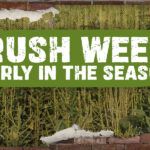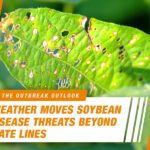Operation Pollinator Promotes Action
Enact sustainable practices to promote the health and habitats of pollinators.

Honeybees may be the most well-known pollinator, but there are more than 100,000 other species that aid in pollination and deserve our admiration, including beetles, flying foxes, lemurs and geckos. Awareness is rising about the importance of pollinators and the critical role they play in our food supply.
Agriculture depends on healthy pollinators. They are essential to natural habitats and critical for successful crop production, packing a mighty punch turning pollen into food. Sustainable agriculture supports successfully feeding today’s consumers while safeguarding pollinators and conserving the environment for future generations.
Pollinators face many survival challenges, including habitat loss and fragmentation, pathogens, unsustainable use of crop protection products and environmental pollution. Syngenta developed the global Operation Pollinator initiative more than 20 years ago to help boost the number of pollinators on commercial farms and other landscapes. It supports growers in their effort to convert marginal farmland into vegetation corridors that provide essential habitat and forage environments for pollinators.
It’s important for farmers and beekeepers to work together throughout the growing season. Before making an application, locate hives near the field and communicate with nearby beekeepers prior to treatment.
Caydee Savinelli, Ph.D., the U.S. stewardship team and pollinator lead at Syngenta, is an entomologist with a passion for protecting pollinators. She educates others about the importance of pollinators and how to engage in sustainable practices to enhance and conserve the natural habitats of both pollinators and surrounding wildlife.
Small changes make a big impact on the environment and a healthy agricultural system. Cooperation and communication among farmers, landowners, applicators, beekeepers, crop advisors and local officials help protect pollinators, their hives and habitats. “It’s important for farmers and beekeepers to work together throughout the growing season,” Savinelli says. “Before making an application, locate hives near the field and communicate with nearby beekeepers prior to treatment.”
Operation Pollinator has enhanced biodiversity on more than 12 million acres of farmland and continues to foster pollinator habitats within the farming landscape. Ensuring a sustainable food supply requires everyone to play their part in preserving the land. To learn more about pollinator protection and stewardship best practices, visit www.BeeHealth.org.
2 Min Read
- The Syngenta Operation Pollinator initiative is more than 20 years old.
- Cooperation throughout the ag industry is key for protecting pollinators.
- Operation Pollinator has impacted more than 12 million acres to date.
More Articles About Community & Culture
2 Min Read























